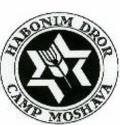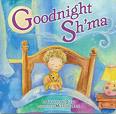 I had the wonderful opportunity to spend the last two days (without my kids!) at Camp Ramah of New England with a group of authors. The trip was organized by the PJ Library, with the goal of inspiring us to create children’s literature that takes place in Jewish overnight camps, another passion PJ Library’s founder, Harold Grinspoon.
I had the wonderful opportunity to spend the last two days (without my kids!) at Camp Ramah of New England with a group of authors. The trip was organized by the PJ Library, with the goal of inspiring us to create children’s literature that takes place in Jewish overnight camps, another passion PJ Library’s founder, Harold Grinspoon.
While I was visiting as a writer of children’s books, it was hard not to view camp primarily through the eyes of a parent (and a blogging parent to boot.) I began to consider what choices we might make down the road. Will we send out daughters to overnight camp? And if so, will we send them to Jewish overnight camp? And if the answer is still yes, what kind of Jewish overnight camp?
Camp Ramah is also, clearly, a wonderful place. The campers we met and observed were just as blissfully happy as I remember being back in 1979. But the culture of the camp is a world apart from Mosh. First, and most noticeable to me, was the number of grownups. There were lots of them, many of them even over the age of (gasp) 30. Also, Ramah is not just a Jewish camp, it’s a religious camp. As part of the conservative movement, the campers pray for half an hour every weekly morning, and for two hours on shabbat morning. They say blessings before and after they eat, and at bedtime, and there were torah scrolls and tallits all over the place. (The only time we saw these at Mosh was when we watched Fiddler on the Roof.) They have a gorgeous waterfront with a floating trampoline and climbing wall, beautiful cabins, movie making, Rick Recht concerts and, Yom Foam. (Don’t ask, but it involves the fire department, and trust me, it’s nothing like Yom Union.)
Sleepaway camp is one of the first places kids can define themselves away from the constant gaze of their parents. They try out new ways of eating, bathing, speaking and being. And at Jewish summer camp, they can start to think about what kinds of Jews they want to be. So, it seems to me that the Jewish summer camp we choose might make a huge difference in the Jewish lives our children lead as adults. What kinds of role models do I want them surrounded by for 4 or 8 weeks every summer? Rabbis, professional teachers, and clean-cut young men and women who pray and observe kashrut and shabbat? Or a bunch of pot-smoking lefties who fancy themselves socialists (albeit with very nice houses) and plan to change the world?
I think I know the answer, but I’m not telling.
author’s note: i’ve edited this piece slightly from the original after some well-deserved whomping from my Mosh friends. To put my comments into perspective, know that I married a (not-so dirty) long haired hippie. Feel free to consider the line about pot-smoking a metaphor.

